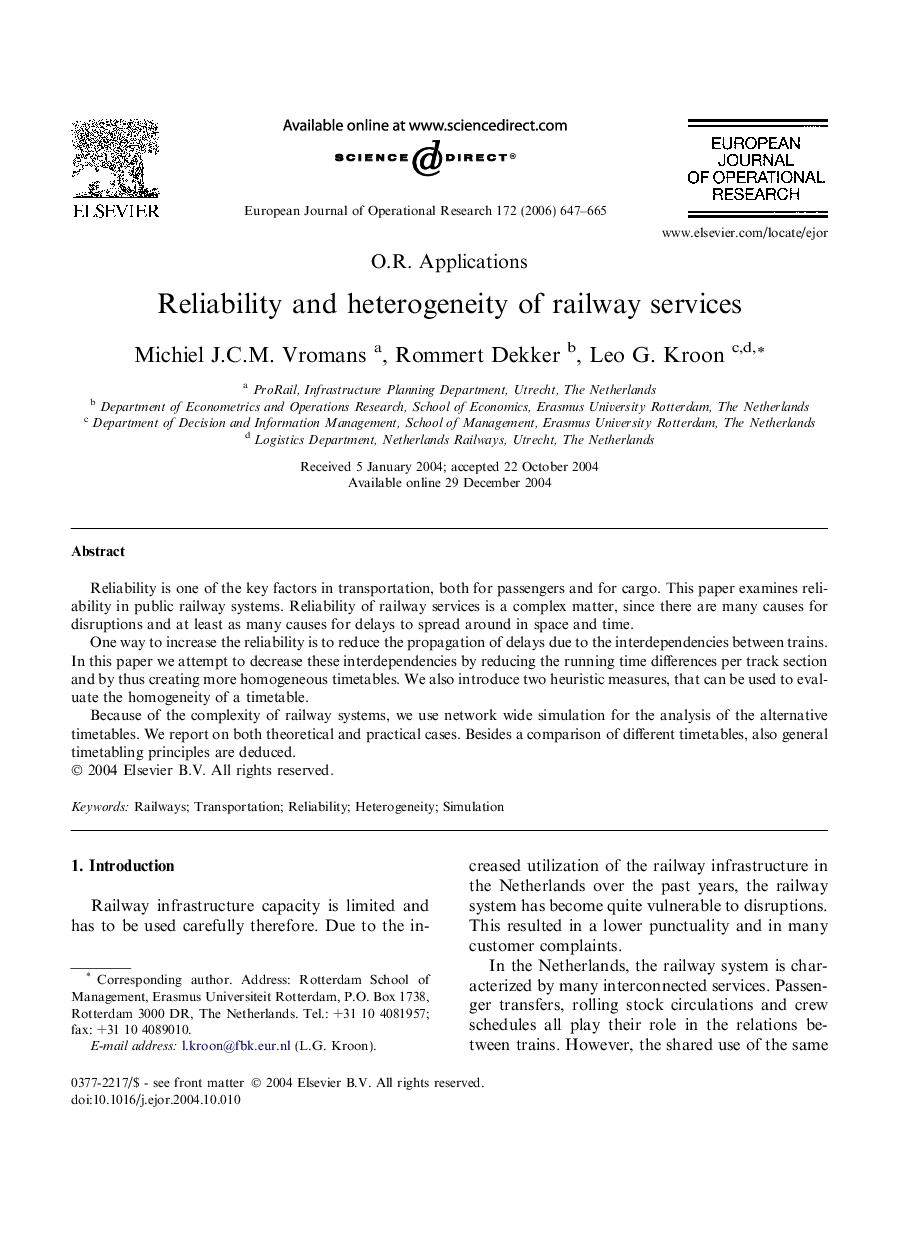| Article ID | Journal | Published Year | Pages | File Type |
|---|---|---|---|---|
| 477948 | European Journal of Operational Research | 2006 | 19 Pages |
Reliability is one of the key factors in transportation, both for passengers and for cargo. This paper examines reliability in public railway systems. Reliability of railway services is a complex matter, since there are many causes for disruptions and at least as many causes for delays to spread around in space and time.One way to increase the reliability is to reduce the propagation of delays due to the interdependencies between trains. In this paper we attempt to decrease these interdependencies by reducing the running time differences per track section and by thus creating more homogeneous timetables. We also introduce two heuristic measures, that can be used to evaluate the homogeneity of a timetable.Because of the complexity of railway systems, we use network wide simulation for the analysis of the alternative timetables. We report on both theoretical and practical cases. Besides a comparison of different timetables, also general timetabling principles are deduced.
